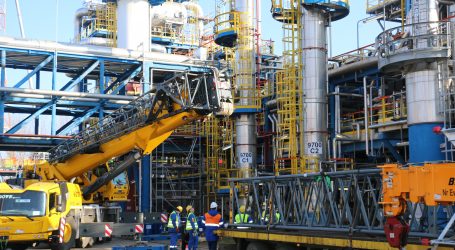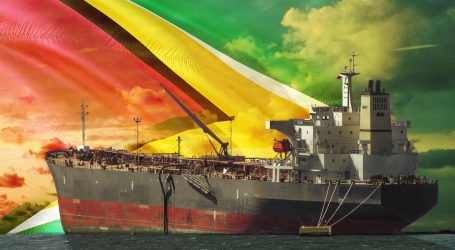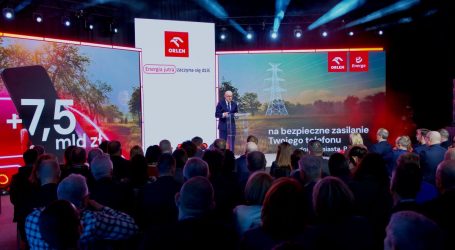PKN ORLEN moves a step closer to merger with PGNiG and Grupa LOTOS
The Ministry of State Assets, PKN ORLEN, PGNiG and Grupa LOTOS have confirmed the structure of the intended merger. They have signed a four-party agreement providing for a merger formula that guarantees stable financial condition of the new strong company and takes into account the needs of all shareholders, including minority interests. The leading role of PKN ORLEN in the transaction has also been guaranteed.
The Ministry of State Assets and PKN ORLEN will cooperate in the development of analyses aimed to definitively confirm the adopted scenario as optimal from the perspective of the State Treasury. Building a multi-utility group is a requisite driver of the business future of all the companies concerned, their shareholder value and energy security of Poland and this part of Europe, serving the interests of both retail customers and local communities.
The plan to merge PKN ORLEN, Grupa LOTOS and the PGNiG Group is a response of Poland’s energy majors to the challenges ahead, facilitating their adjustment to unprecedented market changes. Their European peers responded effectively to these challenges already some time ago – precisely through consolidation. PKN ORLEN, as the leader of the process, will create a group that will truly support the country’s development and the creation of new jobs. The Polish economy needs proper management of a single complex production chain with great potential for further growth and use of competitive advantages, says Jacek Sasin, Deputy Prime Minister, Minister of State Assets.
Under the agreement, the merger will be effected through the acquisition by PKN ORLEN of Grupa LOTOS and PGNiG. This means that, upon the acquisition, shareholders of Grupa LOTOS and PGNiG will acquire new shares in the increased share capital of PKN ORLEN becoming its shareholders. The share-exchange ratio and the final, detailed concept of the merger will be subject to analyses, to be carried out by international consultants as well as other entities, and additional arrangements between the Ministry of State Assets and PKN ORLEN. The merger is the simplest and quickest legal solution possible for the proposed transaction, which will allow for rapid and complete integration of the assets and businesses and will maximise synergies offered by the merger. Funds thus generated will be used to support development and transition programmes of the merged group.
We are getting closer to finalising the merger of PKN ORLEN, Grupa LOTOS and PGNiG. We are creating an integrated and diversified fuel and energy group, based on the strengths of each company, capable of facing the challenges of the energy transition and international competition. We will skilfully leverage this potential to guarantee long-term profits for the companies and their shareholders, stable energy prices for the Polish economy, an attractive package of comprehensive services for customers and development of all employees. The transaction structure that has just been confirmed will ensure liquidity for the new group, thus enabling effective continuation of the existing projects and investment in other promising business areas, such as offshore and onshore wind energy, energy storage and advanced hydrogen technologies, said Daniel Obajtek, President of the PKN ORLEN Management Board.
As a result of the merger, a group will be formed with total annual revenue of approximately PLN 200bn and diversified EBITDA, estimated at approximately PLN 20bn. This means that in terms of capitalisation and financial results, the strong Polish multi-utility company will match or even exceed the potential of its European competitors.
Pursuant to the cooperation agreement signed by the State Treasury, PKN ORLEN, Grupa LOTOS and PGNiG, we are actively involved in the preparations for the merger. The structure of the new group will strengthen the synergies of the merging entities and help optimise business processes, increase revenue, and facilitate joint undertakings. Each party is bringing unique capabilities and resources to the new group. Their effective use will undoubtedly contribute to dynamic development of the group, says Paweł Majewski, President of the Management Board of PGNiG SA.
The transaction and the resulting economies of scale will directly translate into improved energy security of Poland. The merged group will enjoy a significantly stronger bargaining position in its dealings with trade partners from the US, the Middle East and Russia. The exchange of experience in crude oil, natural gas and electricity trading, both at the wholesale and retail levels, will enable the new entity to develop best practices and increase profits in the long term. Cost optimisation in these areas will translate directly into greater stability of energy prices, including fuel prices.
Grupa LOTOS will contribute to the new concern primarily its unique capabilities in the development of hydrogen technologies, but also in oils and lubricants and railway logistics. The merger with PKN ORLEN and PGNiG will guarantee our further dynamic growth, which will enable us to develop our existing projects and pursue new investments. Only as one strong entity will we be able to meet the challenges of the energy transition. We know our strengths and we want to use them to build value of the new group, and thus build Poland’s energy security, says Zofia Paryła, President of the Management Board of Grupa LOTOS S.A.
Following the merger, the scale of capital expenditure on the development of individual business segments formed by PKN ORLEN, Grupa LOTOS and PGNiG will increase. This will translate into tangible benefits for employees, who will gain new career opportunities not currently available to them. The group will invest in green energy, petrochemicals, hydrogen, and further development of the retail business. This will help employees build new, sought-after and highly desirable competencies. It is also PKN ORLEN’s intention to provide security to employees of the LOTOS Group companies covered by the remedies so that, as specialists, they remain within the new group. Such guarantees will be discussed with potential partners participating in the remedial measures.
The merger of PKN ORLEN, Grupa LOTOS and PGNiG will provide a stimulus for development and further diversification of the offering for customers. Considering all the ongoing and completed acquisitions, PKN ORLEN is able to introduce a single bill bundling fuels, gas, and electricity. For customers, it will be more convenient, but will also save time. Moreover, access to a database of millions of individual customers of the merged companies will provide great potential for further development of the VITAY loyalty programme based on a range of comprehensive services.
The combined entity will be based on a fully integrated value chain, from exploration and production, through refining, petrochemicals and modern power and heat generation, to retail. This will guarantee access to cheap and reliable energy sources, both for transport and manufacturing. The new group is expected to strengthen competence centres that will enable effective management of knowledge and experience, as well as better use of the structures and skills already available within each company.
Compared with Grupa LOTOS, PKN ORLEN has a more diversified revenue and product mix. Market changes have led to an oversupply of refining capacity in Europe, thus constraining the refiners’ ability to increase margins. In Europe, five refineries have closed since the start of the pandemic. It is estimated that a further 1.5m barrels/day of refining capacity will be closed in Europe over the next four years, equivalent to about eight large plants. The importance of the petrochemical segment, which Grupa LOTOS has not developed, is also growing. In view of the changing market trends, the merger provides Grupa LOTOS with a guarantee of long-term stable operations.
With upstream being its largest business segment, PGNiG has a significant exposure to oil and gas price fluctuations. Becoming part of an integrated group and consolidation with PKN ORLEN’s refining and petrochemical segments would stabilise PGNiG’s financial results. The merger will also enable PGNiG’s retail segment to improve its revenue and margins, particularly in view of the liberalisation of the gas market for household customers as of 2024 and the related potential emergence of competitive players with a more optimised cost structure. PGNiG’s gas distribution segment, which has potential for further growth, offers stable cash flows that are independent of prevailing economic conditions and can be used to fund new investments.
A single strong entity will be in a much better position to operate effectively in the face of the energy transition, intensifying competition and increasingly stringent environmental regulations. BP, Total, Shell and Repsol are extending and integrating their value chains and investing in business areas with promising prospects. In 2021 alone, they have planned large capital expenditures on RES development, with Shell committing EUR 1.6-2.5bn, Total – over EUR 1.6bn, BP – EUR 450m, and Repsol – EUR 600m with a plan to increase the amount to EUR 1.3bn in 2025. Having successfully completed the acquisition processes, PKN ORLEN will also leverage and reinforce its existing segment-based management system.
rel. PKN Orlen




